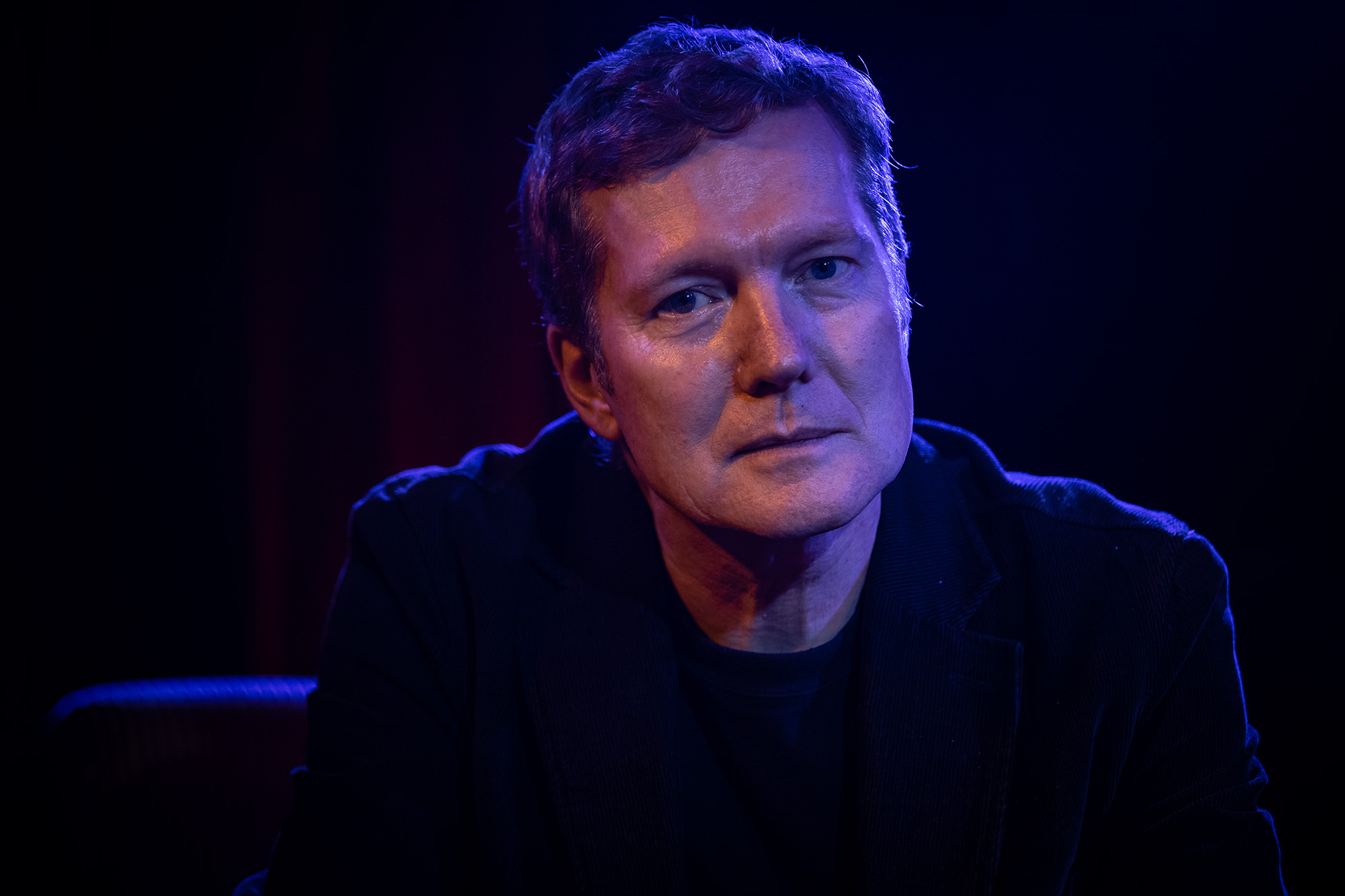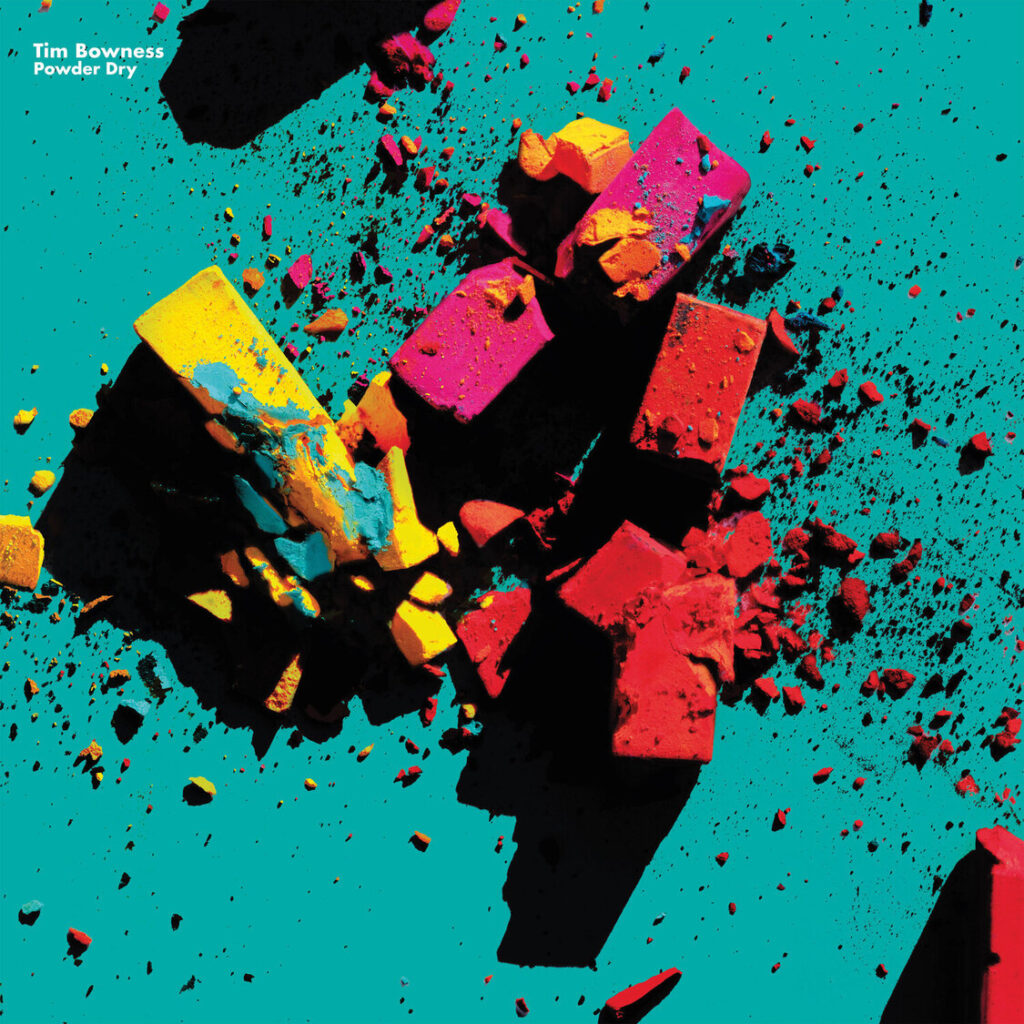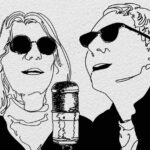
Tim Bowness (photo credit: Leon Barker)
Tim Bowness provides insight into the creative process behind his new album, Powder Dry. Featuring 16 pieces over a compact 40-minute duration, this album represents a bold new direction as his first entirely self-produced and performed work. The record continues his legacy of consistently pushing the boundaries of progressive rock and art pop.
Can you tell us more about the decision to include so many short pieces and how this structure impacts the overall narrative?
Well, I actually wrote 26 pieces for the album. The vast majority were very short, though a few – including a 6 minute piece that was left off – were more conventional in terms of length. Once I’d decided to make a purely solo album, the music flowed and as I’ve said elsewhere, I just tried not to get in the way of it. I followed the very different moods and styles that automatically poured out of me.
The final 5% of any piece tends to eat up 99% of the time spent making it, so of course I obsessed over sonic details and, eventually, album sequencing. My hope is that Powder Dry works as an overall ‘album experience’ and tells a story through its frequent shifts in dynamics and styles.
That said, there are some repeated musical motifs and lyrics on the album and a few of the pieces echo other pieces on the album. As such, perhaps there’s something of a narrative running through the album.
You mentioned that ‘Rock Hudson’ draws from the spiky Post-Punk and Electro-Pop music of the early 1980s. How did these genres influence the overall sound of Powder Dry?
It may sound odd, but you may be able to explain this better than I can. The writing of this album was an instinctive process driven by how I was feeling on any given day. The great thing was that I ended up surprising myself in terms of what was pouring out of me. ‘Rock Hudson’ – like several other songs on the album – wasn’t something I was expecting to come up with.
All sorts of influences and styles cropped up that I wasn’t expecting to tackle and I just enhanced what emerged.
As for Post-Punk and Electro-Pop, between 1978-1982 – when I was a teenager – both genres were thriving. As with the Psychedelic/Underground/Progressive music of the late 1960s/early 1970s, there was a real sense of artists expanding Rock’s vocabulary and accidentally discovering new sonic worlds that others would follow. New and old artists seemed to be operating at a creative peak and I loved a lot of music produced during that time. Without me thinking about it, some of it still comes through in what I produce musically. The likes of Associates Sulk, Peter Gabriel 3, Kate Bush The Dreaming, The Cure Seventeen Seconds, Talking Heads Remain In Light and Japan Tin Drum continue to be inspirational to me.
What were some of the challenges and rewards of taking complete control over the production process?
I see myself primarily as a singer, lyricist and producer, but from the very beginning I’ve always written music and complete songs. Over the last 20 years, I’ve submitted many completely realised recordings as demos for No-Man and my solo work, so the process is something I’m very familiar with.
The difference this time is that whereas I normally write music sporadically, for Powder Dry I wrote a tremendous amount of songs and instrumentals over a period of a year. Once I’d decided on producing a wholly solo album – something I’ve never had the confidence to do previously – I was taken over by the idea of creating new music. It was an exciting time of discovering what was possible for me and it really felt like I was finding myself exploring new territory (for me, anyway). At this stage in my career, to discover that there are still new places to explore is a fantastic feeling (that I hope comes across on the album).
Steven Wilson, your partner in no-man, mixed the album and acted as your sounding board. How did his involvement shape the LP?
Steven was very encouraging right from the start. When I told him about what I was doing, he said – along with Brian Hulse and Peter Hammill – that it was something I should have done a long time ago.
Steven’s view was that my demos tended to be less polite and more adventurous than what ended up on my albums. Brian had also said that on the tracks I’d completely written for Butterfly Mind that he’d just made my demos more ‘musical’.
Steven was a sounding board in that he commented on the tracks he liked the most and made me stick to the album just being me. He also edited a few tracks a little differently (cut and paste). On a couple of the songs he went further, but I rejected those as I felt they weren’t operating in the spirit of the purely solo album that we’d both decided it should be.
Steven has described Powder Dry as your best and most creative solo album. What do you believe makes it stand out compared to your previous records?
It felt different and exciting when I was making it and, luckily, the responses so far have been fantastically positive. In truth, that’s a great relief as I felt very exposed on the album in some ways.
As both Steven and Brian have suggested, my solo solo music is more direct and less polite than what’s come before. Of course, I haven’t jettisoned the melancholy or ‘prettiness’ associated with my music, but this time far more elements have been brought in and it’s more ruthless in terms of editing.
Musicians I collaborate with tend to present me with what they think will suit my voice. As a result, the sonic and emotional palate can be more restrictive and conservative than what I naturally come up with myself. As The Album Years podcast suggests, I’ve got a broad range of tastes and I think this album covers a lot of ground stylistically.
The album lyrics cover a wide spectrum of issues and emotions. This is seen in ‘When Summer Comes’ which seems to have a nostalgic quality. Can you outline some of those themes?
There are themes of eco-apocalypse, social isolation, mad love (as escape) and restricted freedom (through political oppression) that make their way into quite a few of the songs.
The video for ‘Rock Hudson’ by Matt Vickerstaff complements Carl Glover’s artwork. How did the visual elements come together to enhance the mood of the song?
The cover and the videos are a vibrant, colourful depiction of the creative process involved in making Powder Dry. They’re attempts to capture the feeling of making the music itself and I think both Matt and Carl did an excellent job. Personally, I’m really pleased with the visual continuity.

‘Rock Hudson’ is described as a paranoid ode to online discourse. What motivated you to write about this topic, and how do you think it resonates with the current digital climate?
Online communications seem to have become angrier and more divisive. I’m sure many of us worry about being at the mercy of ‘virtual harassment’.
Forgiveness and reasoned debate seem in short supply and politicians and bad actors of all kinds seem to be exploiting this. To get an idea of what people are thinking, I’m sometimes compelled to look through toxic debates on X and I personally find it very, very depressing.
Jo Cox said, ‘We have more in common than that which divides us,’ and I genuinely hope that is the case.
What projects do you planned have for the rest of 2024?
I’m in the process of recording a live album with my live band Butterfly Mind. Probably a CD/DVD. I’ve been really enjoying playing with a stable band and the musicians are wonderfully receptive and instinctive. They make a great whisper to a scream sound, which is quite different from the vast majority of my recorded work. The band comprises Matt Stevens, John Jowitt, Rob Grououtt and the brilliant drummer come YouTube sensation Andy Edwards.
I’ve been writing new pieces on guitar of late, but I’ve no idea what they’ll become and I do have an idea for a follow up to Lost In The Ghost Light (another love letter to the dying art of the album!).
Outside of that, there’s going to be a single with the marvellous Julianne Regan from All About Eve. She has a beautiful voice and is a very creative musician/producer in her own right.
Further information
Tim Bowness’s eighth studio release Powder Dry is being released on 13 September. All Burning Shed pre-orders will now come with an exclusive free download of a mini-album containing alt-mixes and outtakes.




